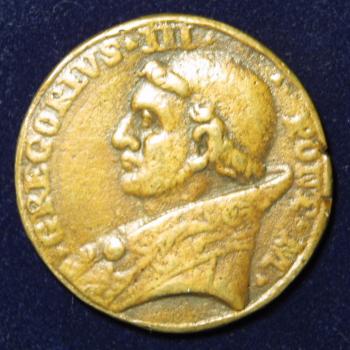Finally, there are the “How the (Literal) Hell Did I Get Here” sins. The sins that, typically being mortal, cause us to break. Yet even, and most especially, here can we see God’s mercy. This is the sin that can, on occasion and in the most transformative way, bring us closer to God. In breaking us, God uses what we meant for evil to open up the possibility of grace. In these moments of pure failing to do what is good, in radically and intentionally turning away from God, God gives us yet another choice, one in which we can chose Him or not. We can see in our worst moments how vain the things of the world are if they fail to lead us to God. To see this, to see where we get on our own, which is ultimately nowhere we want to be, is Grace. In receiving the grace to choose to accept this grace, the sinner finds him- or herself turning to the theological virtue of charity, embracing what Cessario describes as
The goodness of God and [loving] self and neighbor in accord with this goodness and under the impulse of the Holy Spirit…
This act
[Derives] from the person and teaching of Jesus Christ, who alone sets forth the whole economy of salvation…[this is] a result of the personal union [we] enjoy with Christ, the Son by nature, in the Church of faith and sacraments.
In falling, in sinning in this immense way, we realize the truth: we are never going to be better. We are never going to be good enough. And that is not ok. If we want to be happy, if we want to truly be ourselves, if we want to be free, we need the Grace of the infused theological virtues to, as Cessario writes, “penetrate human nature, and as the old adage says, perfect it,” since it is “faith, hope, and charity that imprint their own divine mark on human activity.” In particular, we need to love God, and love Him enough to ask Him to take away every thing which, though created by Him, leads us away from Him so that we might love Him enough to discover that He all the more loves us. This is Charity: to become friends with the God Who taught us that love is dying for one’s friends.
This is hard. When we struggle without seeming to succeed, it is hard to continue to struggle yet again. When it feels like perfection and sanctification in our experience is all on us, we begin to believe this is true. Ultimately, yes we have to fight sin; but, every moment you fight, you repent, you try once again not to sin and instead turn to God, that is grace. Perhaps the grace is not fully realized yet. I can’t tell you why I continue to light off at traffic with words to make a sailor blush, despite informing God I’d really rather not and asking for the hope to know someday I won’t. I certainly can’t tell you why God spent so many years not giving the eventual St. Augustine the grace of infused charity, so that he could change his prayer to “Lord, make me chaste, like, right now” and then find himself chaste. But, perhaps God did not do this because the life of the Church is not a life entirely about any one of us.
Christ suffered for all our sins. He assumed a human nature to His Person. Because of that “descent” and passion, we are offered the possibility of our ascent to beatitude through His salvific act. Likewise, look at St. Augustine. Why might he not be have been chaste for so long? Why was he not given the graces needed to be a saint sooner? Only God can truly know the answer. It could be that he would not have been the saint he became without having truly known that he had nothing which had not been given to him. Perhaps it was so that other men and women struggling with sins of the flesh would see that they too could be healed from their sins and inclinations. To see that they too were not worthless, but worth waiting for and offering salvation to, no matter how many times before they had said no. Perhaps it was so that mothers might never despair for a child who seems to be a lost cause. Perhaps because he would not have loved God in precisely the way he did had he not made these choices. Ultimately, we have to say this: St. Augustine was a sinner and Christ merited salvation for him, pouring out the Holy Spirit into his soul both because he needed those graces to be saved and because God loved him.
So, when you sin, remember this: God loves you. God wants to give you every good thing. So ask. Ask over and over and over again. And remember that you have no idea at what point this seeming tragedy will find itself in the unlikely situation of resolving to happily ever after. So ask for Grace; ask for the infused theological virtues of faith, hope, and love. And remember that each time you try what seems impossible to accomplish, to “go and sin no more,” that God wants to give to you ever good thing and “the greatest of these [things] is love.”












